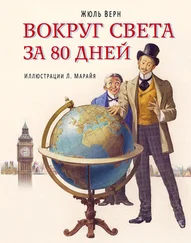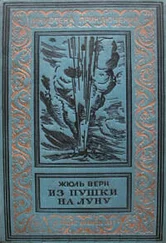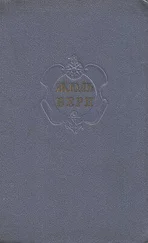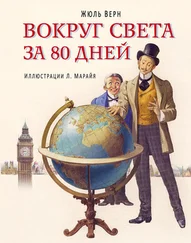The greater part of the travellers were aware of this interruption, and, leaving the train, they began to engage such vehicles as the village could provide wagons drawn by zebus, carriages that looked like pagodas, palanquins, ponies, and what not.
Mr. Fogg and Sir Francis Cromarty, after searching the village from end to end, came back without having found anything.
“I shall go afoot,” said Phileas Fogg.
Passepartout, after a moment’s hesitation, said,
“Monsieur, I think I have found a means of conveyance.”
“What?”
“An elephant! An elephant that belongs to an Indian who lives but a hundred steps from here.”
“Let’s go and see the elephant,” replied Mr. Fogg.
They soon reached a small hut. An Indian came out of the hut, his elephant was half domesticated.
Kiouni [67] Kiouni – Киуни
—this was the name of the beast—could travel rapidly for a long time, and Mr. Fogg resolved to hire him. But elephants are not cheap in India. When Mr. Fogg proposed to the Indian to hire Kiouni, he refused. Mr. Fogg persisted, offering the excessive sum of ten pounds an hour for the loan of the beast to Allahabad. Refused. Twenty pounds? Refused also. Forty pounds? Still refused.
Phileas Fogg, without getting in the least flurried, then proposed to purchase the animal, and at first offered a thousand pounds for him. The Indian still refused. His small, sharp eyes were glistening with avarice.
Mr. Fogg offered first twelve hundred, then fifteen hundred, eighteen hundred, two thousand pounds. At two thousand pounds the Indian yielded.
“What a price, good heavens!” cried Passepartout. “For an elephant!”
It only remained now to find a guide, which was comparatively easy. A young Parsee, with an intelligent face, offered his services, which Mr. Fogg accepted. The elephant was led out and equipped. The Parsee, who was an accomplished elephant driver, covered his back with a sort of saddle-cloth, and attached to each of his flanks some curiously uncomfortable howdahs. Phileas Fogg paid the Indian with some banknotes which he extracted from the famous carpet-bag.
Provisions were purchased at Kholby, and, while Sir Francis and Mr. Fogg took the howdahs on either side, Passepartout got astride the saddle-cloth between them. The Parsee perched himself on the elephant’s neck, and at nine o’clock they set out from the village, the animal marching off through the dense forest of palms.
At eleven o’clock guide stopped the elephant, and gave him an hour for rest. Neither Sir Francis nor Mr. Fogg regretted the delay, and both descended with a feeling of relief.
At noon the Parsee gave the signal of departure. The English have not been able to secure complete dominion over this territory, which is subjected to the influence of rajahs, whom it is almost impossible to reach in their inaccessible mountains. The travellers several times saw bands of ferocious Indians. The Parsee avoided them as much as possible.
But what would Mr. Fogg do with the elephant when he got to Allahabad? Would he carry it on with him? Impossible! The cost of transporting it would make him ruinously expensive. Would he sell it, or set it free?
The night was cold. The Parsee lit a fire in the bungalow with a few dry branches, and the warmth was very grateful, provisions purchased at Kholby sufficed for supper, and the travellers ate ravenously.
The journey was resumed at six in the morning; the guide hoped to reach Allahabad by evening. The guide avoided inhabited places, thinking it safer to keep the open country. Allahabad was now only twelve miles to the north-east. They stopped under a clump of bananas, the fruit of which was as healthy as bread and as succulent as cream.
At two o’clock the guide entered a thick forest. The elephant, becoming restless, suddenly stopped. It was then four o’clock.
“What’s the matter?” asked Sir Francis.
“I don’t know, officer,” replied the Parsee, listening attentively to a confused murmur which came through the thick branches.
The murmur soon became more distinct; it now seemed like a distant concert of human voices accompanied by brass instruments. Mr. Fogg patiently waited without a word. The Parsee jumped to the ground, fastened the elephant to a tree. He soon returned, saying:
“A procession of Brahmins is coming this way. We must prevent their seeing us, if possible.”
The guide unloosed the elephant and led him into the wood, at the same time asking the travellers not to stir.
The discordant tones of the voices and instruments drew nearer, and now droning songs mingled with the sound of the tambourines and cymbals. The head of the procession soon appeared beneath the trees, a hundred paces away; and the strange figures who performed the religious ceremony were easily distinguished through the branches. First came the priests, with mitres on their heads, and clothed in long lace robes. They were surrounded by men, women, and children, who sang a kind of lugubrious psalm, interrupted at regular intervals by the tambourines and cymbals; while behind them was drawn a car [68] car – колесница
with large wheels, the spokes of which represented serpents entwined with each other. Upon the car, which was drawn by four richly caparisoned zebus, stood a hideous statue with four arms, the body coloured a dull red, with haggard eyes, disheveled hair, protruding tongue, and lips tinted with betel.
Sir Francis, recognising the statue, whispered:
“Kali; the goddess of love and death.”
“Of death, perhaps,” muttered back Passepartout, “but of love—that ugly old hag? Never!”
The Parsee made a motion to keep silence.
A group of old fakirs were making a wild ado round the statue. Some Brahmins were leading a woman who faltered at every step. This woman was young, and as fair as a European. Her head and neck, shoulders, ears, arms, hands, and toes were loaded down with jewels and gems with bracelets, earrings, and rings; while a tunic bordered with gold, and covered with a light muslin robe, betrayed the outline of her form.
The guards who followed the young woman presented a violent contrast to her, armed as they were bearing a corpse on a palanquin. It was the body of an old man, gorgeously arrayed in the habiliments of a rajah. Next came the musicians
Sir Francis watched the procession with a sad countenance, and, turning to the guide, said, “A suttee [69] suttee – сати ( устаревший похоронный ритуал в индуизме, в соответствии с которым вдова подлежит сожжению на погребальном костре вместе с покойным супругом )
.”
The Parsee nodded, and put his finger to his lips. The procession slowly wound under the trees, and soon its last ranks disappeared in the depths of the wood. The songs gradually died away.
Phileas Fogg had heard what Sir Francis said, and, as soon as the procession had disappeared, asked: “What is a suttee?”
“A suttee,” returned the general, “is a human sacrifice, but a voluntary one. The woman you have just seen will be burned tomorrow at the dawn of day.”
“Oh, the scoundrels!” cried Passepartout, who could not repress his indignation.
“And the corpse?” asked Mr. Fogg.
“Is that of the prince, her husband,” said the guide; “an independent rajah of Bundelcund [70] Bundelcund – Бунделкханд
.”
“Is it possible,” resumed Phileas Fogg, “that these barbarous customs still exist in India, and that the English have been unable to put a stop to them?”
Читать дальше












